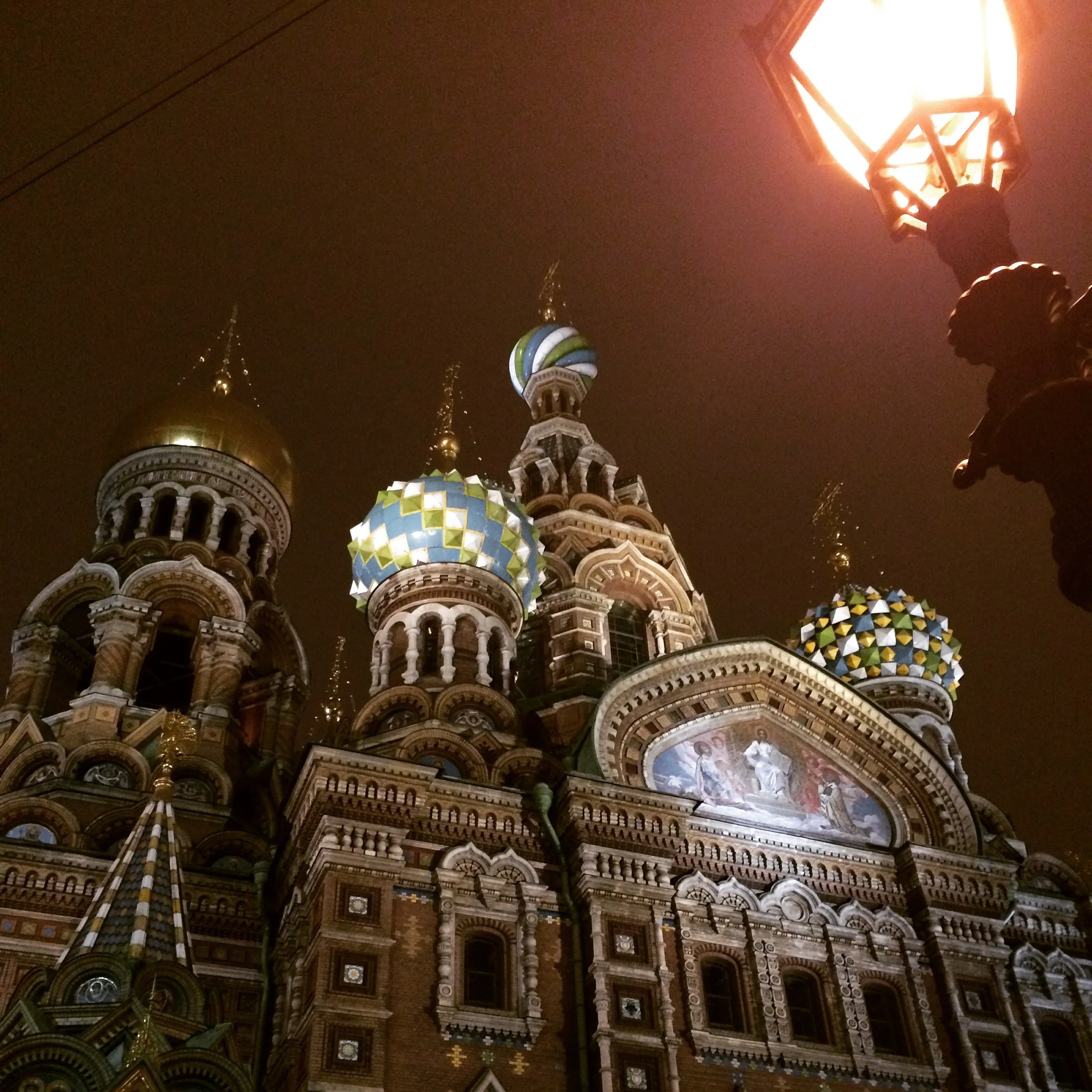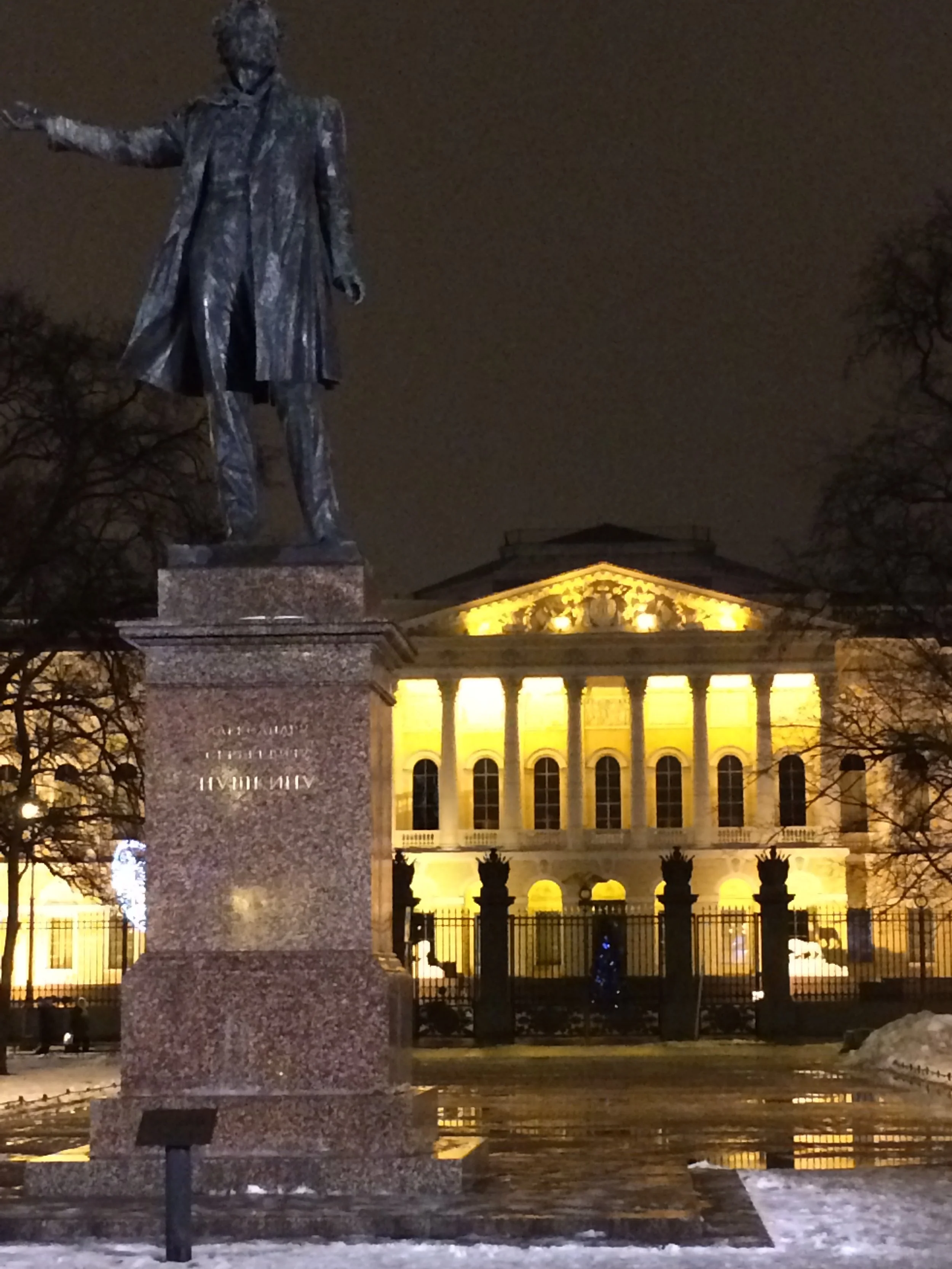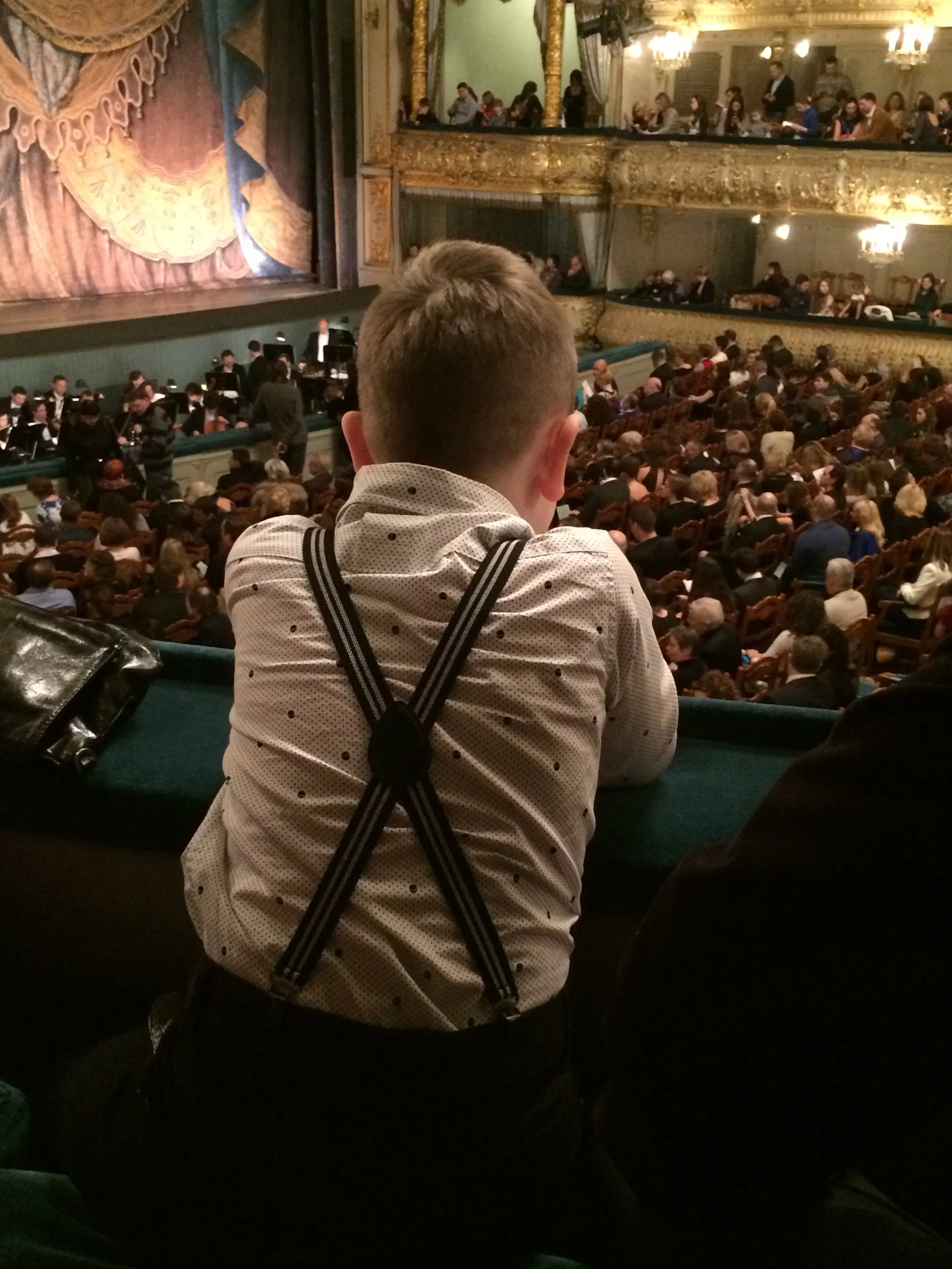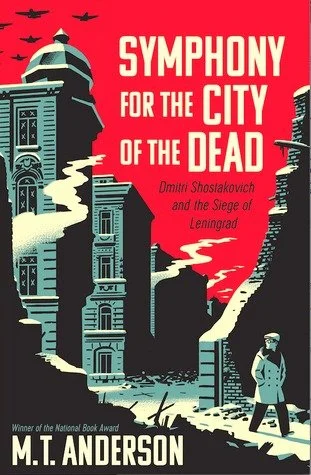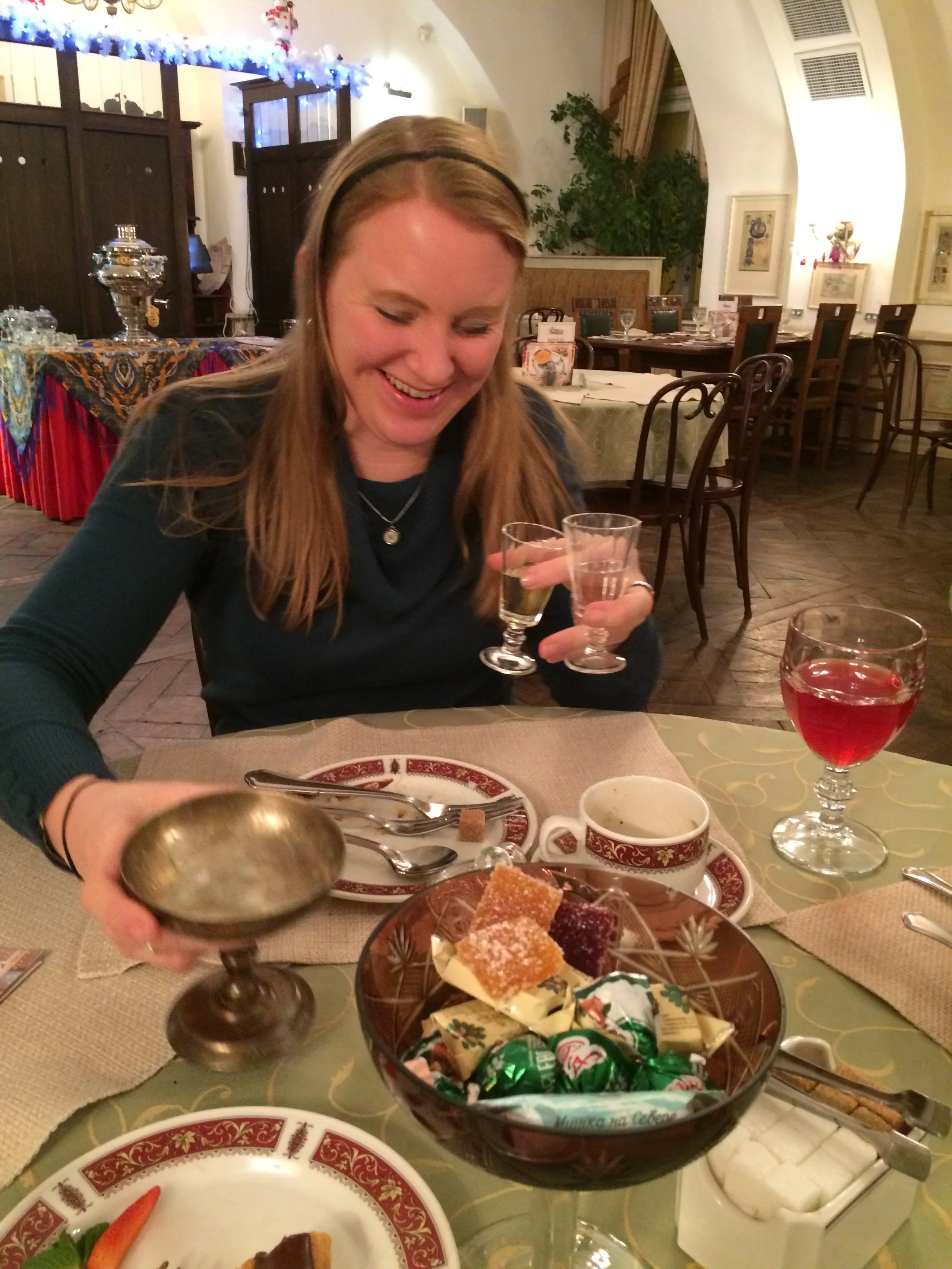Some Thoughts on Ukraine.
Anyone who knows me well, is aware that I am fascinated with Russian history, music, architecture, ballet and literature. So it would only make sense for one of my first blog posts to be about a trip that 4 other American friends and myself took to St. Petersburg on the eve of 2015 where my love of all things Russian found a home on the chilly streets full of sights that I had only imagined.
I began writing this post well over a month ago but then in light of current events it became much different than what I expected. Interestingly that is how I often view so much of what I find fascinating about Russian art, literature and history - what I initially expect to occur often takes quite a turn in another direction and sadly it is all too often a tragic turn.
Church of the Savior of Spilled Blood, St. Petersburg
Months ago when I began writing, I focused on how we can be inspired by Russian culture in finding beauty during difficulties such as the pandemic which we are currently experiencing. However, this seemed a bit trite as we became aware of atrocities being inflicted upon a free people by a horrid leader. Answers I have not - but thoughts I have many. So here I go in trying to communicate them.
One of ideas I keep coming back to is that art is, at times, most important during times of atrocities and conflict. If the assumption is agreed to - that winners of wars write histories - it is often the work of artists to hold these histories accountable. Now more than ever I need to find ways to support the work of artisans on both sides of conflict. I hope that creators of art will miraculously find the ability to express their experiences either in the midst or in the shadows of this conflict. These creations can often have a profound longevity that headlines, newscasts and history books often lose.
Monument to Alexander Pushkin
In addition, instead of banning books and music written by Russian authors now is the time to be reading and finding timeless truths that inspire humanity to act with a greater understanding. (It should go with out saying - but to be clear, this is different than supporting entities that allow bad actors to profit).
Coincidentally, on February 24th, the evening this conflict began in earnest, my husband and I had tickets to attend a Boston Symphony Orchestra’s performance which highlighted music by Russian composers and was conducted by Andris Nelsons - a Latvian who, as a child, experienced the fall of the Iron Curtain. Poignantly Andris addressed the crowd prior to the performance wishing that despite this conflict, peace will win.
Intermission of the Nutcracker at the Mariinsky Theatre
In addition, now is a time to be learning more about Russian history. One of my most favorite works of non-fiction for young adult readers is “Symphony for the City of the Dead” by M.T. Anderson. In this book, the author tells about the 872 day Siege of Leningrad during World War 2 and how Dmitri Schostakovich wrote his 7th Symphony. The author beautifully dedicates his book:
To all young musicians
Thank you for what you give to the rest of us.
Dmeitri Schostakovich had a complicated relationship with the Russian government but was able to stay in the favor of Joseph Stalin. When the siege of Leningrad began, Schostakovich composed a piece to communicate the atrocities of man’s inhumanity to man. To this day many people see Schostakovich, like many other Russian authors and artists, as subversive agents to Stalin’s oppressive regime. I can only hope that this history will repeat itself and truth tellers will find ways to hold the current repressive Russian regime accountable.
(In case you are wondering what Schostakovich’s Leningrad Symphony sounds like - fortunately as with most of life’s important wonderings, Beyonce offers unforgettable insight: click here.)
One final thought that I keep mulling these days is the insight Mr. Rogers imparted upon his viewers:
“That when I was a boy and I would see scary things in the news, my mother would say to me, ‘Look for the helpers. You will always find people who are helping.”
Throughout this conflict when the worst of humanity is on display, there are whispers of the best of humanity - moms leaving strollers at train stations for refugees, people carrying dogs while fleeing and toys being left on pedestrian bridges for children as they enter a new country. These are glimmers of helpers showing that in the direst of circumstances love of neighbors can win.
As wonderful as this lesson from Mr. Rogers is - all too often I’m afraid this lesson ends at giving comfort rather than inspiring us to courageously be helpers in this big, beautiful and complicated world (The Fetishization of Mr. Rogers’ Look for the Helpers by Ian Bogost).
And I think this is a primary reason of why I love Russian culture - that in their literature, art, music, etc. - we can learn how to be helpers in even the most dire of circumstances. All too often, the helpers do not achieve peace, comfort, victory in the end, yet their courage can’t help to be inspiring and admired.
So during this time of conflict in addition to gathering my news from credible sources - you will also find me listening to Tchakowsky, finally reading a long put off biography of Catherine the Great, revisiting some favorite works of Fyodor Dostevsky all while drinking vodka that is approved by Governor Sununu. In addition, Harvard Bookstore has compiled a fantastic book list of Ukrainian History and Literature. You can click here to check it out. Now more than ever it is important to Read Far and Wide!
Vodka Tasting!


